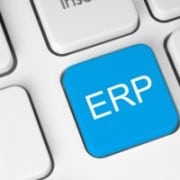Five ERP trends for 2024: what to expect from the market
Enterprise resource planning (ERP) systems help companies manage and analyze their business processes all in one place. ERPs cover everything from inventory to accounting to personnel management. Sejal Desai, IT expert and application designer and developer, shares an article on LA Progressive along with experts from Light IT Global forecasting five interesting ERP trends we can expect from the market this year to improve efficiency and sustainability.
Expansion of industry-specific solutions. “Previously, companies had to spend considerable time and resources customizing universal ERP systems to their individual needs. Now, there is a trend in the ERP market towards creating systems that take into account the specifics of individual industries. They are already pre-configured with the specific functions of their business. These can be, for example, accounting functions adapted for construction, retail, or manufacturing. Thus, companies get a system that initially meets their operational requirements. This speeds up the start of work with the system and reduces the risks associated with its adaptation. Moreover, by using ERP functionality tailored to specific needs, companies can respond more quickly to changes in the industry.”
Mobility. “According to our consultants from Light IT Global, in 2024 there is even better adaptation to the needs of modern business. In particular, mobile ERP systems allow managers and employees to efficiently manage the business from anywhere in the world, providing access to data in real-time.”
Promotion of sustainable development and ESG. “Companies are also recognizing the importance of integrating sustainable practices into their business processes. They are increasingly incorporating features into their ERP systems that contribute to sustainable development. These features help companies manage their carbon footprint and compile environmental reports. Managing carbon footprint through ERP allows companies to track and analyze carbon dioxide emissions at all stages of production and logistics. This enables them to optimize processes to reduce their environmental impact. Environmental reports integrated into ERP provide detailed information on the company’s impact on the environment. These reports contain data on resource consumption, waste management, and energy use.”
Artificial intelligence and process automation. “Artificial intelligence is transforming the way businesses operate. It automates routine tasks, allowing employees to focus on more complex tasks. AI can process large volumes of data quickly and with high accuracy, helping to make informed decisions. One of the important applications of AI in ERP is data management. AI can analyze sales data, inventory, or customer behavior, predicting trends and optimizing inventory. Generative artificial intelligence opens up new possibilities for content creation. For example, it can automatically generate reports, texts for marketing campaigns, and even analytical materials, reducing the time and effort required for these tasks. AI also helps in decision-making: based on the analysis of past data and current trends, systems offer recommendations from which people choose what they need.”
Integration of the Internet of Things. “There is significant potential in integrating IoT and ERP to improve various aspects of business, from manufacturing to logistics and quality management. These systems allow for the automatic collection of data from a variety of devices and sensors, which contributes to improved management of production processes, resource optimization, and reduced downtime.”



Leave a Reply
Want to join the discussion?Feel free to contribute!